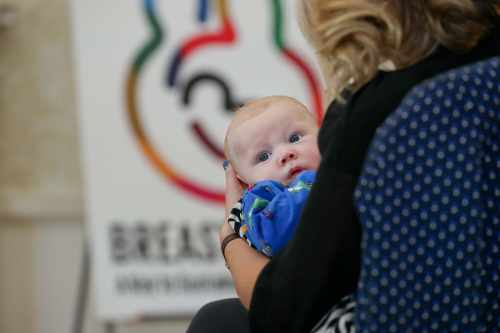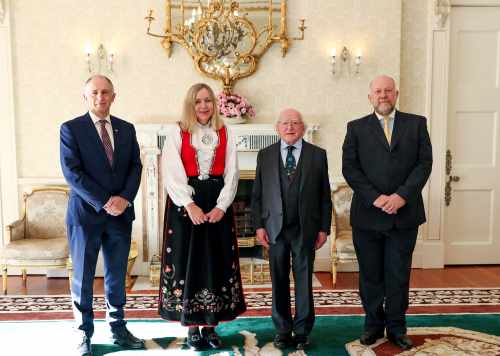Speech to the European Research Council
Iveagh House, 12th October 2016
A chairde,
Is mór an pléisiúir dom é labhairt ag dinnéar an Chomhairle Eorpach um Thaighde, institiúid a bhfuil ról lárnach aici i gcosaint agus i gcothú ár dtraidisiún Eorpach intleachta. Is mian liom mo bhuíochas a ghabháil le hUachtarán Acadamh Ríoga na hÉireann, an tOllamh Mary Daly, agus le hUachtarán An Chomhairle um Thaighde in Éirinn, an tOllamh Jane Ohlmeyer, as a gcuireadh dom bheith in bhur dteannta anocht. Tá fíorchaoin fáilte romhaibh ar fad go Bhaile Átha Cliath agus go hÉireann.
May I thank Professor Mary Daly, President of the Royal Irish Academy, and Professor Jane Ohlmeyer, President of the Irish Research Council, for inviting me to join you this evening. You are all most welcome to Dublin and to Ireland. It is my great pleasure to be addressing this dinner of the Scientific Council of the European Research Council, an institution that plays such an essential role in sustaining our European tradition of intellectual freedom, curiosity and excellence.
The work of the European Research Council [ERC] is faced with great challenges. Indeed we are challenged, not just to secure understanding and support for a science appropriate to the great issues of our time, such as climate change and sustainable development, but also to protect the long vision and the atmosphere needed for the freedom of fundamental science to wonder and discover. The ERC’s commitment to long-term, exploratory research has become of even more fundamental importance in a context marked, across Europe, by significant pressures on governments’ funding of basic research in the aftermath of the recent financial crisis, towards the analysis and understanding of which such little intellectual effort has been directed. We live at a time when ever more spheres of human activity are required to adjust to quantifiable objectives and short-term productivity, criteria which ignore scientific ethos at its best or wider social responsibility. Indeed the language of the market has been leaning on academic culture and educational institutions, in a way that is not simply making the case for the utility of an instrument of science but rather that of an ideology.
Yes, research and science have moved, at least rhetorically, from the periphery to the centre of government agendas throughout Europe. However debates about the role of knowledge and research are often taking place in a very narrow political and untested ideological space. What might we come to know? With which aspects of research might policy-makers concern themselves, with what consequences or benefits, and for whom? – these are important questions for all European citizens.
In a recent address to the European Universities Association, I critiqued what I called an unquestioning and narrowly defined utilitarianism which, I suggested, is profoundly harmful to the practice of research. If we want to continue to nurture, in Europe, independent thinkers, adventurous and questioning scholars, it is vital, I believe, that our research and educational institutions preserve themselves from any excessive emphasis on short-term outcomes and that which is measurable. It is vital that they are sheltered from quantification solely in terms of consumption patterns – models which are so unsustainable and inadequate for the future as well as the present.
Intellectual creativity is not quantifiable. It can never be fully or appropriately described in statistics – in the number of patents, publications, or even in the number of jobs, so very important to our citizens, that it might generate. Nor should knowledge acquisition and research training ever be assessed exclusively in terms of their effects on the wider economy and the labour market, however important such a focus may be. Science, education, training – these are processes and practices that have an intrinsic value, fostering as they do the development of such intangible life-enhancing skills as empathy, imagination, analytical thinking, patience, clarity in reasoning, as well as sheer curiosity.
Research with intended and tangible applications is, of course, immensely worthwhile. Yet public funding for the applied research we need should never be at the expense of investment in basic research. So many of the inventions that have revolutionised our daily lives (for the better or the worse) are the product of basic research, even serendipitous discovery, with no direct application. As all of you here know very well, cutting edge innovation is rarely neatly foreseeable, and researchers must be allowed to journey into the false avenues as well as the fruitful ones. They must be free to take the gaits of serendipity that arduous professional training, collegial work, and appropriate funding have made possible.
If we truly want Europe to be a cradle of innovation, it is vital, therefore, that we continue to support exploratory research at, and beyond, the frontiers of understanding. This means sustaining firmly, in all of our respective countries, that bedrock of basic research from which all scientific breakthroughs spring.
The case for “frontier research” was eloquently made by the President of the ERC, Professor Jean-Pierre Bourguignon, during his visit to Dublin in November 2014. In the address he delivered at the Royal Irish Academy, Professor Bourguignon argued that diminishing public support for what is sometimes called by the beautiful name of “blue-skies research” endangers the very research base of our European countries, as well as pushing our most promising scientists to seek opportunities abroad. Professor Bourguignon also pointed out how basic research foundations are very difficult to recover once they have gone for too long.
May I say, Professor, that I fully share your concern at how failing support for pioneering research can damage Europe’s research capacity in the long-term.
I also share your views as to the need to protect our research infrastructure from the dependency that the incursions of commercial interests can so often represent. The damage that vested private interests can cause to scientific integrity is illustrated most vividly, I believe, by the false science that has been produced in some countries to bolster arguments that deny the reality of climate change. Such bogus science is not just harmful to the ideal of truth upheld by the profession, but also to the welfare of all those who dwell on this fragile planet.
We are fortunate, in Europe, to have a body such as the European Research Council to sustain the standards of research excellence. Indeed since its creation by the European Commission in 2007, the ERC has supported so many promising ideas and some of the most talented researchers, across the European Union. May its reach become ever more extended and inclusive, avoiding the lure of the strong, so that the weak may become equal.
Importantly, as pointed by Professor Bourguignon in his interviews to the Irish media, two years ago, the ERC’s work is by no means a substitute for ambitious national research policies. It remains the primary responsibility of each government to ensure the flourishing of the great intellectual potential, the genius, that there is at the heart of every European people.
Here in Ireland, recent decades have witnessed significant advancements in the fields of science and research. And there are probably no better-suited hosts for the discussions of the ERC’s Scientific Council, on their meeting in Ireland, than the Irish Research Council and the Royal Irish Academy – two institutions that have been amongst our most passionate and consistent advocates for frontier research.
The older of these two distinguished institutions, the Academy, has, over its long history, been home to many pioneering scientists such as, for example, Ernest Walton, who was awarded the Nobel Prize in Physics in 1951 for his work on the artificial splitting of the nucleus of the atom. And one of the Academy’s past Presidents was, of course, William Rowan Hamilton, whose discovery of quaternions made a significant contribution to algebraic theory.
Surprisingly perhaps, Ireland’s contribution to the development of European science is not always appropriately acknowledged, even amongst Irish people. This is, possibly, because the power of imagination has, in this country, found such remarkable incarnations in the realm of literature and in the words of such as Swift, Wilde, Yeats, Joyce, Shaw, and Beckett.
Yet, alongside Hamilton and Walton, it seems only right that we also remember the names of, for example, Robert Boyle, who, in the 17th century, was instrumental in demonstrating the virtues of observation and experimentation as a means to apprehend the natural world; of John Tyndall, who explained why the sky is blue and was the first scientist to prove the Greenhouse Effect; of Nicholas Callan, who invented the induction coil; of William Parsons, who built the world’s largest telescope and enabled astronomers to locate new structures in the heavens; of George Gabriel Stokes, who investigated the phenomenon of fluorescence and advanced the wave theory of light; or of John Lighton Synge, who pioneered the study of black holes.
It would be a mistake, though, to view science as somehow strange or beyond the boundless imagination of our great writers. It was an Irish scientist – George Johnstone Stoney, Professor of Natural Philosophy at Queen’s College Galway – who coined the term ‘electron’. But it was an Irish writer, James Joyce, who gave the word ‘quark’ its spelling, in a line of Finnegans Wake.[1] This may have been an unintentional contribution to the development of particle physics, but it illustrates well the wealth of sources which shape the way we see, understand and talk about science. James Joyce was endlessly curious about science and knew what he was about when Adam and Eve became atoms and ifs in Finnegans Wake. As Walter Isaacson said,
“Science gives us the empirical data and the theories to tie them together, but humans turn them into narratives with moral, emotional and historical meaning.”
Indeed not through its physical properties alone can our universe or any of our lives together, or in lonely isolation, be understood. The humanities have something essential to contribute – alongside biology and neuroscience – to, for example, our comprehension of the nature of human consciousness or what it means to be human. It is through leaping the boundaries that divide discipline from discipline, science from the arts and humanities, and by marshalling the diverse influences from our intellectual heritage that we can best meet the complex challenges of the future, learn to live, and try to love.
May I conclude, dear friends, by suggesting that the contemporary European challenge of recovering social Europe, of building cohesion and legitimacy, of eliminating fear, is not merely about connecting the currency, the economy and the people in a new and different way; it is, I am profoundly convinced, about forging a new humanism – an atmosphere of ethical intellectual venture as will enable new generations of scholars to explore possibilities yet unknown.
May I invite you, then, to seek to make a new discourse with fellow Europeans, and lodge within it an invocation of the emancipatory possibilities of intellectual curiosity, the joy of empathetic science and the sharing of insight, a collective openness to serendipity, and above all, not just the defence but the celebration of pluralist scholarship and kindness in teaching.
Go raibh míle maith agaibh go léir.
---
[1] “Three quarks for Muster Mark!”


